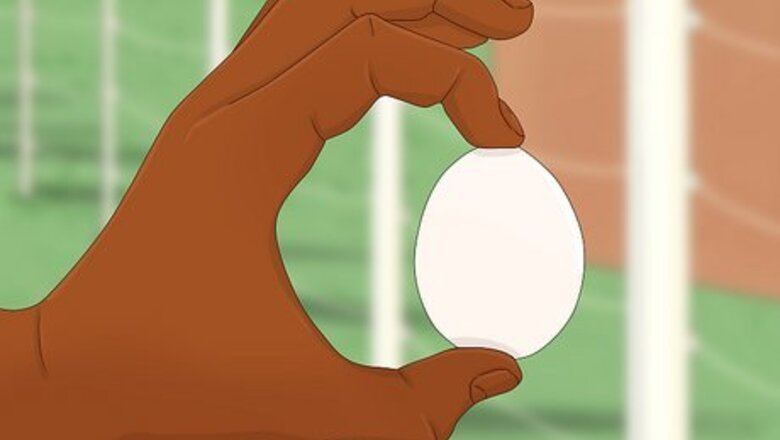
views
X
Research source
If you'd still like to give it a try, this article will go over the entire process step-by-step.
- Make a preservation liquid of 1 ounce (28 g) pickling lime to 1 US quart (0.95 L) distilled water.
- Layer unwashed, farm-fresh eggs in a 1 US gal (3.8 L) food-grade bucket, and cover the eggs with lime water.
- Store your eggs in a cool, dark location for up to one year.
Choose clean, farm-fresh eggs.

Examine each egg for cracks, leaving out ones that aren’t intact. Set aside spotless, unrefrigerated eggs until you have enough to fill your food-grade storage bucket. Collect your eggs as soon as they’re laid—your chickens are less likely to soil or break them. As long as they’re unwashed, unrefrigerated farm-fresh eggs last up to 2 weeks at room temperature. Wash and refrigerate dirty eggs—they cannot be preserved because the protective outer layer, or bloom, is removed during the washing process.
Mix pickling lime and distilled water.
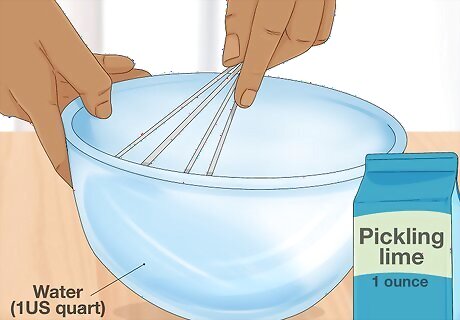
Use 1 ounce (28 g) of pickling lime for every 1 US quart (0.95 L) of water. Combine both ingredients in a medium-sized bowl, and whisk until the lime is completely dissolved. This preserves about one dozen eggs, but adjust the volume of water if you have more or fewer eggs (use the same lime-to-water ratio). Pickling lime is also called calcium hydroxide or hydrated lime.
Place the eggs in a lidded, food-grade bucket.
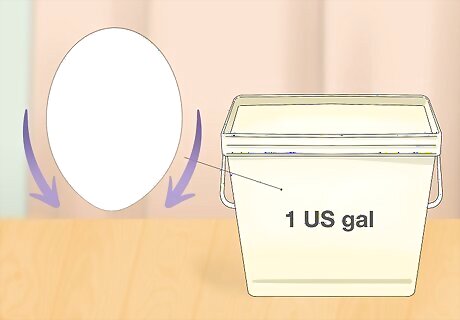
Position the eggs pointy-side down to maximize space. Gently layer your eggs in a 1 US gal (3.8 L) food-grade bucket, making sure all the eggs remain fully intact. Double-check each egg for hairline cracks. When hydrated lime seeps into your eggs, it makes them inedible.
Top the eggs with the lime water.
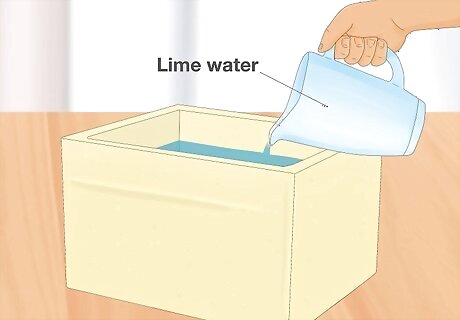
Pour the preserving liquid over the eggs until they’re fully submerged. Leave at least 2 inches (5.1 cm) of lime water on top of the eggs, and then securely seal the bucket to prevent any lime water from evaporating. It’s perfectly normal for the pickling lime to settle at the bottom of the bucket over time.
Store the eggs in a cool, dry location.
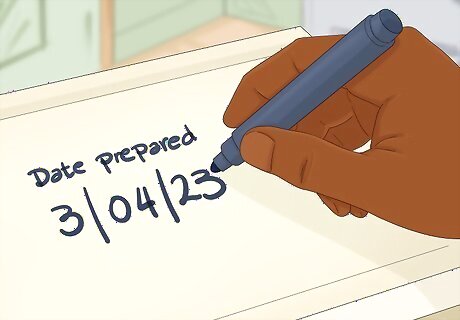
Keep your eggs out of direct sunlight. Place your preserved eggs in a dark area like the basement or pantry. Excess heat can burst your eggs, so avoid exposing them to sunlight or placing them near a heat source. Write the date on the lid of your food grade bucket and store for up to a year.
Rinse the eggs thoroughly before use.
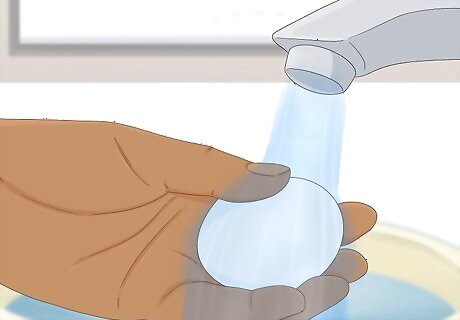
Wash your eggs under cool, running water for 30 seconds. Remove any eggshells and remaining pickling lime. Although pickling lime is safe for preserving eggs, it’s not safe to consume directly. Lime water also curdles a freshly-cracked egg.
Check each egg for freshness
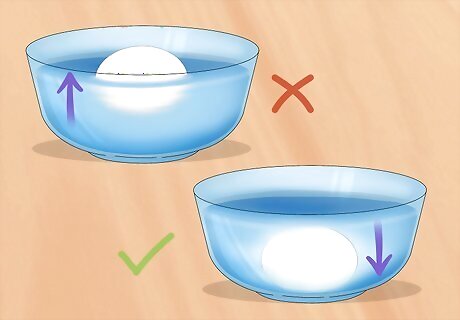
Crack each egg in a separate bowl before use. Make sure your eggs have a domed orange or yellow yolk, and ensure the whites are slightly thick and opaque. If your eggs smell spoiled, throw away the entire batch. Alternatively, perform a float test to check for rotten eggs. Place one of the preserved eggs in a small bowl filled with cold water: if the egg floats, it’s not safe to eat, but if it sinks to the bottom, it means it’s extremely fresh.
Prick the eggshell before boiling.
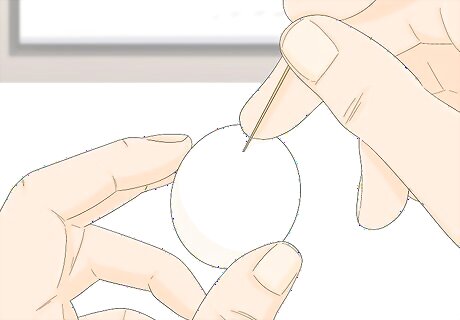
Pierce the eggshell to prevent it from exploding. Use a toothpick to make a small hole in the shell, especially if the egg feels fuller than normal. During the preservation process, the pickling lime completely seals the egg, filling any small holes in the eggshell. This creates a build-up of pressure in the egg, which can cause it to burst if it isn't pierced.
Enjoy your preserved eggs for up to 1 year.

Scramble, fry, bake, or boil your eggs. Cook your eggs any way you like—they taste the same as the day they were laid! For the freshest flavor, eat them within 6-8 months. Make a fried egg sandwich for a filling lunch, or make cheesy scrambled eggs for a decadent breakfast (or breakfast for dinner).













Comments
0 comment